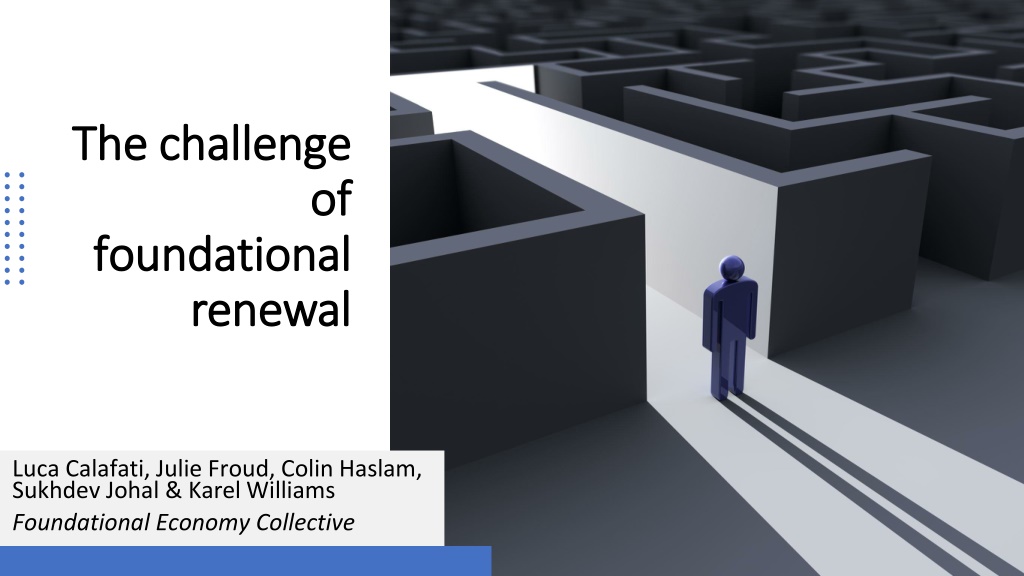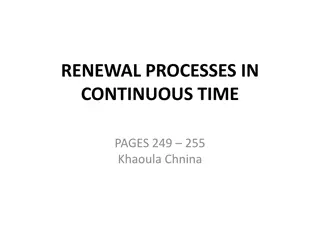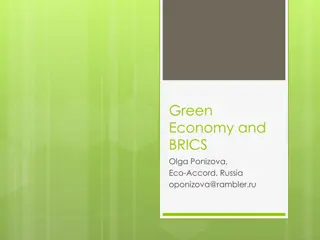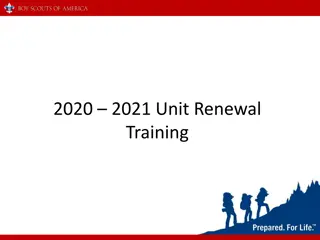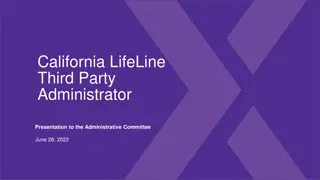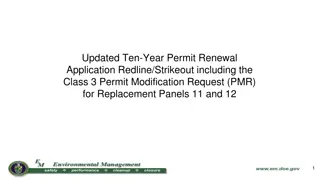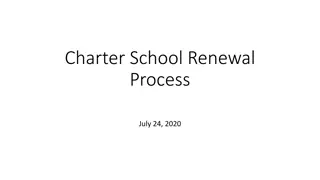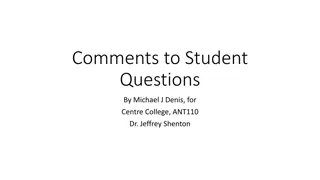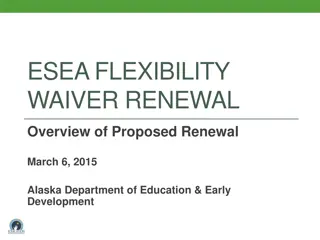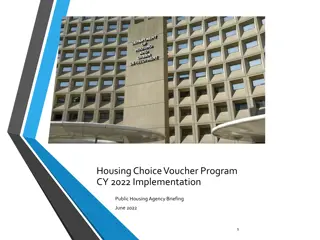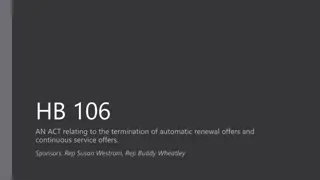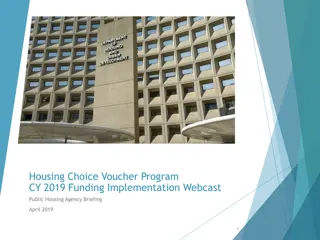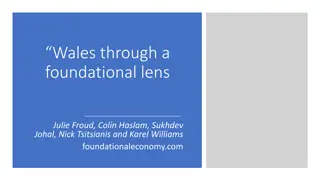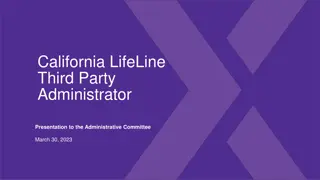The Challenge of Foundational Renewal in Economy
The challenge of foundational renewal encompasses two distinct eras - FE 1.0 (1880-1950) focused on urban and industrial society, while FE 2.0 (post-2020) aims to address climate change and biodiversity. Despite past achievements, obstacles like structural changes and lack of leadership hinder progress. FE 1.0 improved life expectancy but struggles with sustainability, while FE 2.0 faces challenges like decarbonization and low-carbon services. These complexities highlight the need for innovative solutions and political engagement towards a sustainable future.
Download Presentation

Please find below an Image/Link to download the presentation.
The content on the website is provided AS IS for your information and personal use only. It may not be sold, licensed, or shared on other websites without obtaining consent from the author. Download presentation by click this link. If you encounter any issues during the download, it is possible that the publisher has removed the file from their server.
E N D
Presentation Transcript
The challenge The challenge of of foundational foundational renewal renewal Luca Calafati, Julie Froud, Colin Haslam, Sukhdev Johal & Karel Williams Foundational Economy Collective
Two ways of looking at the FE looking back at huge achievements of FE 1.0: the first foundational revolution 1880-1950 in urban, industrial society; and its degradation post-1979 looking forward to the uncertain prospects of FE 2.0: challenge of foundational renewal post 2020 to confront climate change + secure bio diversity Foundational renewal as a wicked problem: only now agreeing the problem after 30 years debating man- made climate change. BUT no closer to finding political agency + economic levers The difference of FE 2.0 vs FE 1.0 Obstacles to renewal (1) structural changes in living and working (2) the absence of leading actors + the need for alliances The challenge of foundational renewal
Difference of FE Difference of FE 2.0 2.0 vs FE vs FE 1.0 1.0 - FE 1.0 1880-1950 revolution - FE 2.0 2020- uncertain prospect - generals fighting the last war
Foundational Economy 1.0 = 1880-1950 systems which keep us safe and civilised Task: putting in reliance systems (a) providential services like education + health (b) material infrastructure like pipe and cable utilities Aim: well-being of the current generation/ public health in urban, industrial settlements when Manchester in 1840s had life expectancy below 40 Achievements: added 20 years to urban life expectancy + created new sectors so that FE accounts for 50% of Welsh employment & output Political corollary: stable two party liberal democracy on a platform of citizen entitlements FE 1.0 knocked about but still working in 2019 after privatisation, outsourcing and austerity but restoration not enough to tackle env & ecological sustainability FE looking back: Foundational Economy 1.0 1880-1950
Foundational Economy 2.0 = 2020-onwards innovations against climate change + for bio-diversity Task: big objectives without plan/system (a) decarbonising 3 high footprint sectors i.e. food, housing & transport (b) expanding production of low carbon services like health, care & social infrastructure Aim: well-being of future generations in an unsustainable world. At the current level of Welsh consumption and production, mankind would require 2.8 planets (Stockholm Institute, 2015); with food, transport and housing accounting for 59% of that footprint Achievements: negligible so far; virtue signalling by setting distant target dates 2030 -2050, while we underperform e.g. Wales missed its 2010-20 CO2 emissions reductions targets Political corollary: reactive populism & authoritarianism; democratic disconnect among the young FE looking forward: Foundational Economy 2.0 2020 onwards
FE 1.0 1880-1950 = top down, state engineers install systems with proven technologies: borough engineer for gas and water; Beveridge for social insurance; NHS for free hospitals with antibiotics, anaesthetics, antiseptics Green New Deal = large promises about re- engineering projects e.g. Labour Party 2019 to upgrade almost all of the UK s 27m households to the highest energy efficiency standards , cut average household energy bill by more than 400 & end fuel poverty But this requires a contextual and particular metis = map the housing stock, plan cost & carbon effective interventions; negotiate with 15m UK owner occupiers on replacing gas boilers; upgrade electricity gen and distribution given limits of heat pumps; factor in how rebound effects cancel efficiency gains Central, regional and local state doesn t have this capacity; outsourcing + subsidies would be a disaster; rockwool cavity insulation of 6m UK homes or smart meters are a warning; housing retrofit for 80% carbon reduction = 20% of capital cost of Welsh house Re-engineering + metis: generals preparing to fight the last war
Obstacle Obstacle 1 1: structural changes in : structural changes in living and working living and working - will new technologies save us? - fear of popular libertarianism - planning with participation
Structural changes in how we live and work: breakthrough technologies will not save Can we transition without structural change in how we live and work: e.g. battery or hydrogen cars, not fewer cars, smaller cars and less miles? Techno optimists vs puritans debate potential of breakthrough technologies: e.g. Adair Turner synthetic jet fuel for sustainable aviation vs Julian Allwood stop flying & timetable for closing UK airports by 2050 Verdict: structural changes are required Irresponsible to rely on low-cost-at-scale solutions delivered by breakthrough technologies: can t predict/ won t be enough winners to decarbonise sectors Outcomes depend on connections between technologies, not adding individual technologies e.g. charging infrastructure (half Brits do not have off-street car parking); or passivhaus estates without active travel us
FE 2.0 meets popular libertarianism against prohibitions and deterrent pricing which limit perceived individual freedoms; (NB/ in FE 1.0 real collective freedoms underpinned extension of the franchise + stabilised democracy) The flashpoint = car use in (a) materially formatted societies where the car is the universal tool for accessing work, shopping and leisure and (b) with appearance of individual freedom when car liberates from constraint of fixed timetable + route Blockage of reform Blowback vs centrist good intentions e.g. Macron s planned increase in fuel tax provoked the gilets jaunes, a broadly based French protest movement Dirty politics of right wing populism e.g. Scott Morrison elected over Australian Labour which had proposed more electric cars after a save our utes scare campaign Reasons to be politically fearful: popular libertarianism
Revive (town) planning which was displaced by economics of agglomeration and subordinated to property developers The political case for reinventing planning to deliver sustainability without compromising liveability; heading off political reaction and loss of trust A new positive vision of sustainable live/ work communities as a motivational device; Buchanan s 1960s vision turned upside down i.e. how towns with out traffic can deliver Jane Jacobs kind of vitality A new technical practice of planning for coordinated introduction of new technologies with popular participation for political buy in e.g. Just Space (2016) Community Led Plan for London Can we mobilise a new expertise? planning with participation
Obstacle Obstacle 2 2: the fragmentation of : the fragmentation of political agency political agency - weak government + governance - new political culture - alliances for change
FE 2.0 must deliver despite incapable government + ineffectual governance (cf FE 1.0, the local & central state had political agency as the leading actor) Weak government Rise of multi level government = unintentional loss of autonomy reinforced in UK by privatization, outsourcing + austerity; local authority personnel, functions and capability hollowed + upper levels reliant on thin metrics. Ineffectual governance Huge expansion of the non-governmental in the FE: (a) NPISHs (not for profit institutions serving households e.g. local health boards, housing associations); (b) PLCs in privatised utilities & outsourcing; (c) private equity care chains Ineffectual governance by NEDS; management capture after financialization: under revenue constraints and/ or pressure for financial returns, management gets on with making its business model work financially/ hitting KPIs in siloed single organisations Fragmentation Fragmentation of political of political agency: agency: weak government + governance
Against this background, innovative national & city regional developments in different contexts, illustrated by Wales, Barcelona, Vienna Beyond recipes + consultancy, an emerging culture of policy creep, npish institutional stretch, and local initiative; With Wales as a leader: Policy creep: e.g. WG carries on with GVA + inward investment but also (a) tentatively funding 50 policy experiments, (b) confusedly reforming public procurement, (c) rethinking small business policy Institutional stretch: e.g. Housing Associations beyond core role like United Welsh developing relational procurement, Coastal doing social regen, Clwydalyn reinventing meals on wheels Local initiative by shining light organisations combining commercial acumen + social values e.g. Cwmni Bro with 250 jobs in Blaenau; Wrexham Council s direct labour organisation; grounded, capable for-profits Reasons to be cheerful: a new political culture
The new FE 2.0 problems include political challenges about levering social innovation (not engineering problems about installing reliance systems, scaled up and rolled out) In the absence of a unitary leading actor, how to build political alliances which marshall agency and capability for controlled structural change with political consent? In the first instance: Working across departments and levels in government Reaching NPISHs who have the capability + personnel to do in FE 2.0 much of what LAs did in FE 1.0 Developing new institutions for informed consent and trust e.g. citizens assemblies + juries Can we put together alliances for change? to deliver the disruptive social innovation we need
